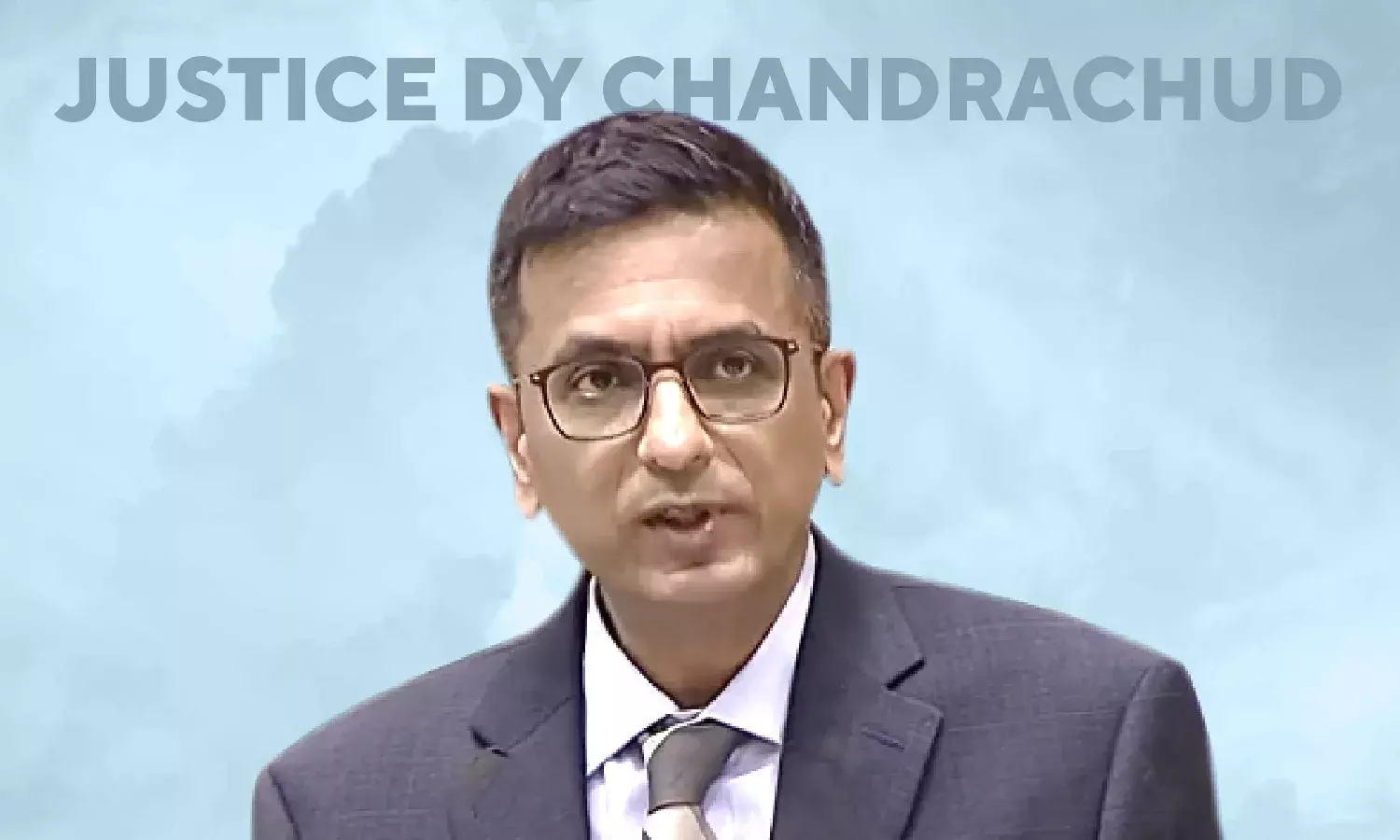Structure Of Legal Profession Feudal, Patriarchal, Not Accommodating Of Women: CJI Chandrachud

Chief Justice of India D Y Chandrachud today said the structure of legal profession is "feudal, patriarchal and not accommodating of women" and there is a need to have a democratised and merit-based process for entry of more women and marginalised sections of society.
Justice Chandrachud, who took charge as CJI on Wednesday, said there are numerous challenges before the judiciary and first among them is of expectation as every social and legal matter and a large number of political issues come within the jurisdiction of the Supreme Court.
"One thing which we need to understand is that the judiciary has a feeding pool. The feeding pool which determines who enters the judiciary is largely dependent on the structure of the legal profession", Chief Justice Chandrachud said.
"The structure of the legal profession even today across India is feudal, patriarchal and not accommodating of women,'' the CJI said at the Hindustan Times Leadership Summit.
''So when we talk of having more women in the judiciary, it's equally necessary for us to lay building blocks for the future by creating access to women now. The first step is entering the chambers of senior lawyers which is an old boys club," he said.
"How do you gain access to chambers by tapping your connections? Until we have a democratised and merit-based access to the entry point in the legal profession we will not have more women and will not have more people belonging to marginalised sections," he said.
He said the live streaming of court proceedings was a new experiment that gave an insight into what technology can do to transform the legal system and said proceedings of high courts and district judiciary should also be live streamed.
"One of the greatest dangers in a Constitutional democracy is the danger of being opaque. When you open up your process you generate a degree of accountability, transparency and generate a sense of responsiveness to the needs of the citizens," he said.
"When I speak of live streaming, I do not speak of live streaming on the big ticket cases. We need to live stream the proceedings of the High Court but also of district judiciary because the interface of the common citizen is first and foremost with the district judiciary," the CJI said.
On the issue of comparison between the Indian Supreme Court and the US Supreme Court, CJI Chandrachud said it is important not to equate the Apex Court here with that of other developed countries because ''we have a uniquely Indian structure for our institutions''.
"When you compare us with the US Supreme Court which hears a total of over 180 cases a year or the UK Supreme Court which hears 85 cases a year we have a Supreme Court where every judge hears about 75 to 80 cases on Monday and Friday while 30 to 40 cases on Tuesday, Wednesday and Thursday. That gives you the reach of the work which the Supreme Court does", Justice Chandrachud said.
"Many of the cases which we deal with do not necessarily come in newspapers or cases which are considered significant enough to be dealt with on social media. These are routine cases", he added.
''So the question is should a Supreme Court judge in which the country has invested so much be dealing with small cases like pension and maintenance. My answer is yes because that is indeed the role of the Supreme Court," he said.
Chandrachud said the ability of courts to thrive as a judicial institution in a democracy lies in the confidence that it generates in the minds of the people. The CJI said judges often come across as old-fashioned because of black gowns and the imposing regalia.
"When you combine that with a sonorous voice and legal language it can be a heady combination for utter boredom. But to borrow that song by Doris Day and Frank Sinatra - 'We are among the very young at heart," he said.
With PTI inputs

